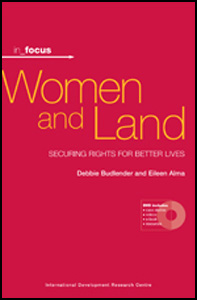About IDRC
A Crown corporation, we support leading thinkers who advance knowledge and solve practical development problems. We provide the resources, advice, and training they need to implement and share their solutions with those who need them most. In short, IDRC increases opportunities—and makes a real difference in people’s lives.
Working with our development partners, we multiply the impact of our investment and bring innovations to more people in more countries around the world. We offer fellowships and awards to nurture a new generation of development leaders.
What we do
IDRC funds research in developing countries to create lasting change on a large scale.
To make knowledge a tool for addressing pressing challenges, we
- provide developing-country researchers financial resources, advice, and training to help them find solutions to local problems.
- encourage knowledge sharing with policymakers, researchers, and communities around the world.
- foster new talent by offering fellowships and awards.
- strive to get new knowledge into the hands of those who can use it.
In doing so, we contribute to Canada’s foreign policy, complementing the work of Global Affairs Canada, and other government departments and agencies.
Resources
Displaying 116 - 120 of 324Women and Land. Securing Rights for Better Lives
Includes experiences from the field (East Africa, Malawi, Cameroon, Senegal, Colombia, Pakistan). Lessons learned include participation-oriented research methods are recommended. Merely passing legislation is of little effect without the necessary resources for implementation, monitoring reforms or effective sanctions. Crucial to consult and involve women when designing reforms and monitoring their implementation. Addressing land injustices requires varied approaches. Vital to establish and maintain links among research, policy, practice and people.
Women and Land
Here it is an important book on Women's Land Rights, published by the International Development Research Centre.
Policy Analysis and Advocacy Programme (PAAP) electronic newsletter, volume 13, number 10, 4 June 2010
This e-newsletter issue argues for the prioritization of Sustainable Land management (SLM), given the dependency of the livelihoods of local communities on land and land resources. There are existing legal and legislative frameworks for citizens’ participation in decision making and development, however practice to date does not reflect effective participation of districts in central government planning, and sub-counties in district level planning. The report outlines barriers to policy development and practices as well as reparative policy reform proposals.
Advocacy phase : final report
The report covers activities and outcomes of various projects for enhancing women’s access to land and land titles in Kenya, Mozambique, Madagascar, Nairobi and in other areas of East and Southern Africa, as well as raising awareness about women’s land rights.
Managing natural resources for development in Africa : a resource book
The conceptual difference between conventional scientific and natural resource management (NRM) research is based on the need for researchers and the NRM community to be joint learning partners in the process. “Managing Natural Resources for Development in Africa” is a collective endeavour to reframe, filter and contextualize some of the main concepts, theories and practices of NRM. It provides up to date information, and discusses approaches that can equip African graduates with the knowledge, skills and attitudes to respond to changes in social and ecological systems.







